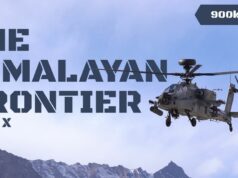“Water, in the case of India and Pakistan, has been both a connector and a divider since Partition,” Sinha said in an interview. “The Indus basin is not just geography—it is unique hydrology, an intriguing history, and a compelling story of statecraft and diplomacy.”
At the heart of his study is the Indus Waters Treaty (IWT), signed in 1960 after eight years of negotiations involving India, Pakistan, and external powers like the United States and the World Bank. Sinha calls the treaty a paradox: “It is both a symbol of cooperation and a reminder of unresolved conflict.” Despite wars, Kargil, and repeated terror attacks, the treaty has endured for 65 years—making it the rarest continuity in India-Pakistan relations.
The book highlights how engineers, rather than diplomats, drove the treaty negotiations, ensuring India secured exclusive rights over the eastern rivers crucial for Punjab and Rajasthan’s irrigation, while Pakistan received rights over the western rivers. India retained limited rights on the western rivers, including storage and hydroelectric projects, though Sinha notes these remain underutilized even today.
The narrative also explores how Pakistan sought to link water and Kashmir, with leaders like Ayub Khan framing the western rivers’ allocation as justification for territorial claims. Nehru, Sinha argues, was magnanimous on water but uncompromising on Kashmir, even as he faced criticism at home for conceding too much.
Six and a half decades later, the treaty stands technically non-revocable, but with its utility questioned. “The treaty has lived beyond its purpose,” Sinha observes, pointing to the need for a new framework amid climate stress, ecological fragility, and shifting political realities.
Ultimately, Trial by Water suggests that to understand India-Pakistan relations, one must begin with the rivers—sources of both survival and strife.
In a career spanning three decades and counting, Ramananda (Ram to his friends) has been the foreign editor of The Telegraph, Outlook Magazine and the New Indian Express. He helped set up rediff.com’s editorial operations in San Jose and New York, helmed sify.com, and was the founder editor of India.com.
His work has featured in national and international publications like the Al Jazeera Centre for Studies, Global Times and Ashahi Shimbun. But his one constant over all these years, he says, has been the attempt to understand rising India’s place in the world.
He can rustle up a mean salad, his oil-less pepper chicken is to die for, and all it takes is some beer and rhythm and blues to rock his soul.
Talk to him about foreign and strategic affairs, media, South Asia, China, and of course India.




